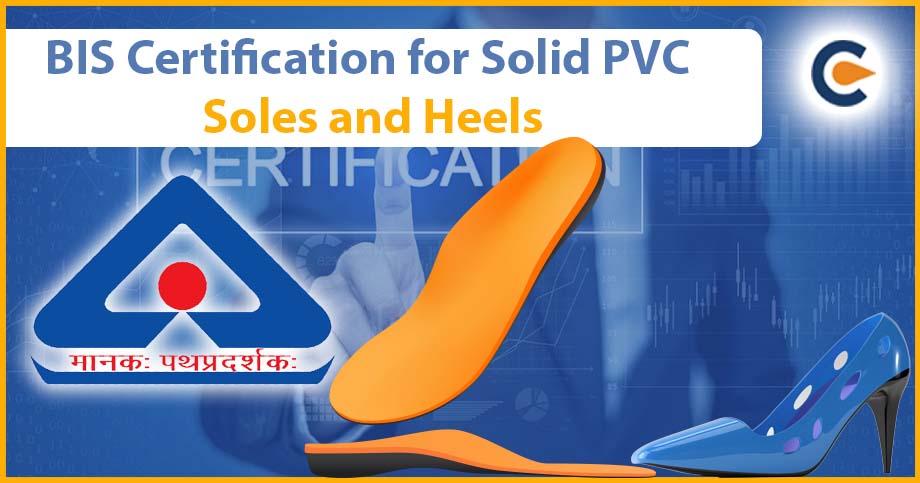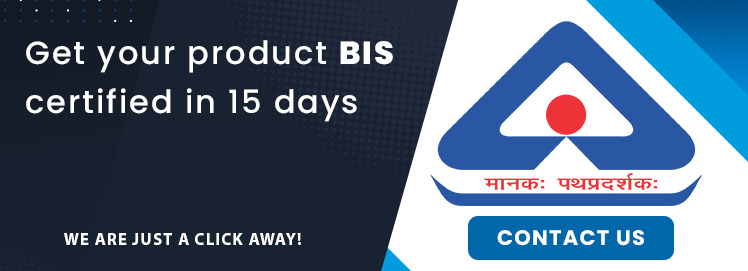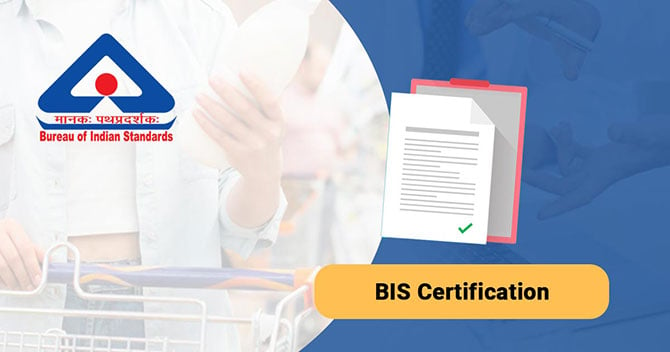Shoemakers are required to pay extra attention to the wearer’s comfort and foot safety. That is why there is a great demand for Solid PVC soles and heels in the shoe industry. Being important shoe components, they are widely used because of their unprecedented characteristics and long-lasting service life. However, the quality of these raw materials can vary drastically if attention is not paid. To ensure that these materials adhere to the utmost quality, BIS mandates shoemakers to align their testing protocol with the IS 6719:1972. The term “IS” stands for Indian Standards. In this article, you would come across the detailed process of how to obtain BIS certification for Solid PVC soles and heels.
Underlining the Role Of IS 6719:1972
Being important components of the shoe, Solid PVC soles and heels must pass testing requirements cited under IS 6719:1972. The specification does not talk about the design aspect of the soles and heels or PVC composition. Rather, it lays emphasis on the essential physical requirements.
The standard pens down the requirement concerning testing and sampling methods for the following:
- PVC full solid soles (with or without heels)
- Half soles
- Heels sold as finished goods produced by direct injection
Note: the standard doesn’t deal with PVC shoes’ soles and heels.
The soles and heels used in footwear shall be made of PVC resin and mixed with its copolymers. The resins must have the apt amount of plasticizers and stabilizers. The resulting surface should not have any deformities. The size and thickness of these materials should be as per the purchaser’s requirements. As per the standard, the recommended hardness for PVC soles and heels should range between 65 and 75 IRHD. The physical requirements of these materials should be in line with the standard.
Tests to Qualify For BIS Certification for Solid PVC Soles and Heels
To ensure that PVC soles and heels adhere to recommended physical characteristics, the manufacturers should perform the following test on these products in a manner advisable by the standard.
- Thickness Test
- Tensile Strength Test
- Relative Density Test
- Tear Strength Test
- Test For Lead
- Volatility Test
- Hardness Test
The standard also provides for the maintenance of the in-house lab where these tests shall be performed by qualified staff. Again, how these tests should take place is specified in the standard.
Each sole and heel must carry the maker’s name or trademark, if any, along with the type and size of footwear.
The product should bear ISI marking in accordance with the standard’s guidelines. Even the packaging methods should align with the standard’s norms.
ISI marking is not available to manufacturers lacking the BIS certification. One must apply to the BIS for the grant of this license by filing a prescribed application.
The authority, in response, will vet the application and production facility for any non-compliance. The grant of the certificate will be based on the findings of the BIS officials[1].
Documents Needed For the BIS Certification for Solid PVC Soles and Heels
Following is the list of documents required for BIS Certification for Solid PVC Soles & Heels:
- Factory license
- List of equipment available in the in-house lab
- Documents concerning Business Registration
- Lab report issued by the certified lab
- List of products for which a BIS license is needed
- Details of machines involved in the production process
- Flowchart depicting various processes involved in the shoe production
- Trademark registration if available
- An authorization letter issued by the company’s official(s) permitting an agent to file an application.
How to Obtain BIS Certification for Solid PVC Soles and Heels?
Applying for a BIS license involves various complicated steps as shown below. Make sure to arrange the above paperwork beforehand before you proceed to the registration process for BIS Certification for Solid PVC Soles & Heels.
Step 1: Web-Based Application Filing
The process for obtaining a BIS license begins with online application filing. While filing the e-application, the applicant must enclose vital information concerning business, products, testing capabilities, manufacturing process, etc. Avoid adding any information that seems misleading or inaccurate. Thereafter, upload the mandatory paperwork as discussed in the preceding section. Once done, head to the payment gateway to submit an application fee.
Note: A single application for BIS certification is available for a single product type only. If you want to register more than one product type, file a separate application.
Step 2: Vetting Process
As the name suggests, this step is all about the inspection performed by the BIS officials. Since this is the critical phase of the application process, make sure to be compliance-ready to avert any legal nuisance.
This step involves three critical undertakings performed by the BIS officials- Documentation inspection, on-site vetting, and sample(s) collections.
While scrutinizing the production premises for any non-compliance, the officials will consider the following parameters:
- Manufacturing Infrastructure
- Testing capabilities
- Production process
- Standard(s) being followed
Upon premises assessment, BIS officials will take some samples from the production lot for testing.
Step 3: Lab Testing Of Samples and Report Preparation
The selected sample(s) shall be dispatched to the recognized lab for comprehensive testing. The following tests shall take place in the lab to determine the quality threshold of the samples.
- Thickness test
- Tensile strength test
- Relative density test
- Tear strength test
- Test for lead
- Volatility test
- Hardness test
Upon completing these tests, the lab will prepare a detailed report enclosing their findings and outcomes.
Step 4: Report Collection by the Applicant
In this step, the lab will prompt the applicant to collect the lab report within the stipulated timeline. The lab will share this information with the applicant via registered contact details. Since the lab report adheres to the limited validity, the applicant must collect the same on time and share it with the authority for review.
Step 5: Final Review and Grant of BIS License
This being the last step in the process, the authority will perform the final review of the report and accordingly grant the registration to the applicant. Upon securing the BIS license, the license-holder can affix the ISI marking on their products.
Conclusion
ISI marking is a standalone sign of reliability and quality in India. It not only ensures the availability of safer products but also keeps the generic counterparts at bay. ISI registration is available to almost all types of manufacturers, including shoemakers. It is not easy for shoe manufacturers to qualify for this license since there are endless compliances to be met. But, by adhering to the above information you can easily secure BIS certification for Solid PVC soles and heels.
Also Read:
What Is BIS Certification In India?
BIS ISI Certification For Ordinary Portland Cement
An Overview Of BIS ISI Mark For Cement Manufacturers













